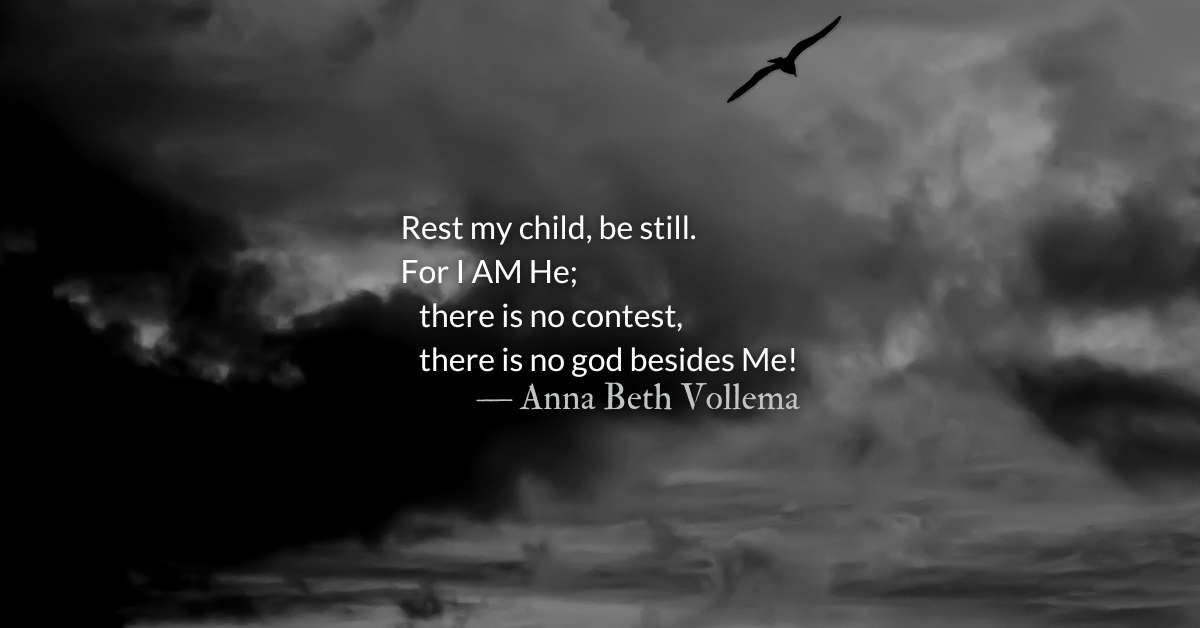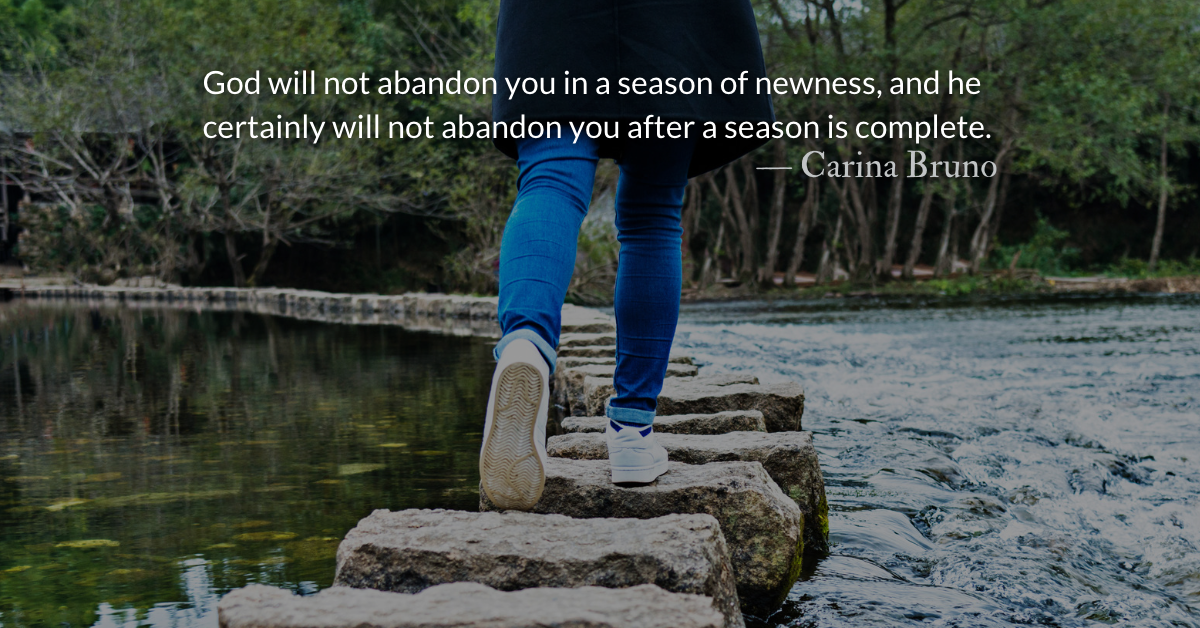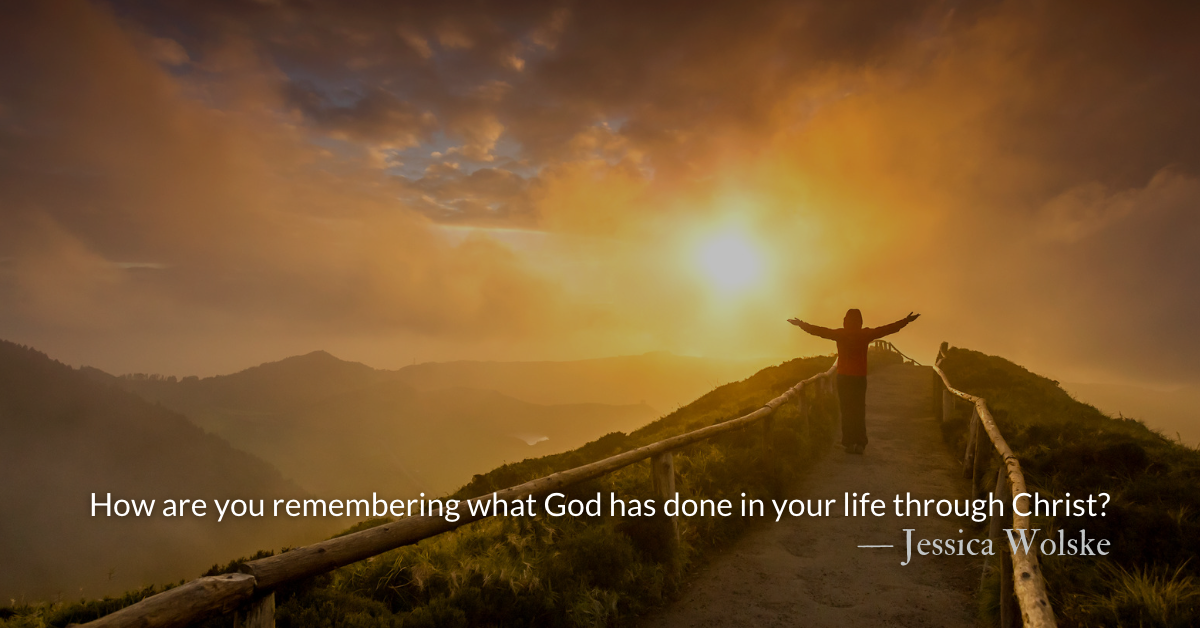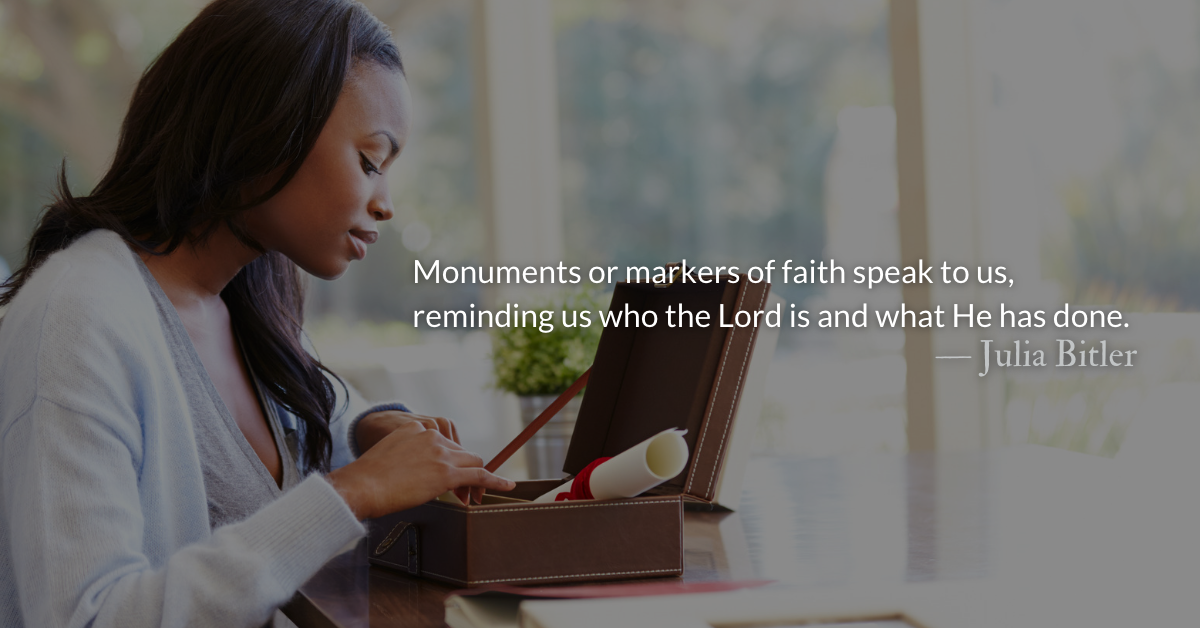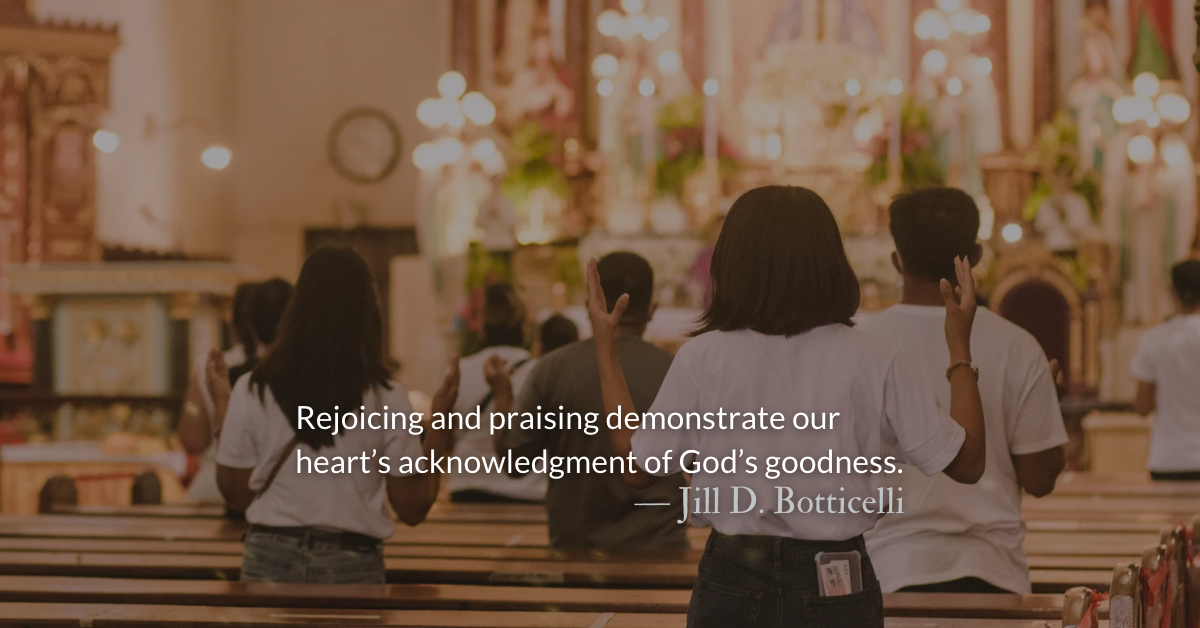Scripture Focus: Deuteronomy 32.17-18
17 They sacrificed to false gods, which are not God—
gods they had not known,
gods that recently appeared,
gods your ancestors did not fear.
18 You deserted the Rock, who fathered you;
you forgot the God who gave you birth.
Deuteronomy 32.39
39 See now that I myself am he!
There is no god besides me.
I put to death and I bring to life,
I have wounded and I will heal,
and no one can deliver out of my hand.
Romans 3.25-26
25 God presented Christ as a sacrifice of atonement, through the shedding of his blood—to be received by faith. He did this to demonstrate his righteousness, because in his forbearance he had left the sins committed beforehand unpunished— 26 he did it to demonstrate his righteousness at the present time, so as to be just and the one who justifies those who have faith in Jesus.
Reflection: When the Day Turns Dark
By Anna Beth Vollema
Come, let us contest child,
if you will not leave me again.
If you will not bend
to the whisper of the air;
Soft and Sweet,
easy and enticing,
everything you asked for;
When you spoke out of the night,
out of desperation and impatience,
out of fear and forgetfulness;
distractedness.
You’ll want it all,
and you’ll want it quickly.
Like a junkie wanting his next fix,
you’ll strip your gold bangles,
you’ll pull out your hairs,
you’ll throw in your shambles,
you’ll give up your years,
To an idol of your own making;
a statue in your own image;
a chasing after the wind.
Tremble my child, and quake.
For I AM he;
there is no god besides Me!
My presence is life;
My absence is death.
The justice you long for is the crown of my head;
the chaos of the world is reigned by my ropes;
and the floodgates of my wrath will clear all the wrongs.
So, bask in the light of my face, oh child;
shelter in the rays of my eyes
For I see what you need,
and I see who you’ll be.
So, be with me.
Or I’ll have to let you go;
go stumbling after the wind;
go traipsing into the floodwaters,
so that you taste darkness again.
The darkness of my absence;
My face turned away.
You’ll bear the burden,
I bear for you every day.
You’ll bear the sadness,
of remembering what once was;
The sweetness of the food,
in the house of your First Love.
I’ll let you bear this burden
so that you remember again,
who I AM;
who I’ve been;
the redemption,
in my hands.
Rest my child, be still.
For I AM He;
there is no contest,
there is no god besides Me!
By my life there is Truth;
by my death, there is life.
Justice was quenched by my time on the tree,
the chaos of the world will end by my love,
And from the floodgates of my wrath,
you will be protected.
So, bask in the light of this lamb, oh child;
shelter in these lion eyes.
By wrath and mercy intertwined,
my love, unified;
To set you free
free to run back to Me;
free to skip like a child,
on a holiday at the sea.
Divine Hours Prayer: The Call to Prayer
Search for the Lord and his strength; continually seek his face. — Psalm 105.4
– From The Divine Hours: Prayers for Summertime by Phyllis Tickle.
Today’s Readings
Deuteronomy 32 (Listen7:10)
Romans 12 (Listen 2:58)
Read more about Platforming Idols
What a difference between the gods of the earth and the true God of heaven!
Read more about Idolatry as Parody
We become like our idols: fraudulent, shameful, unable to think, and unable to respond.

